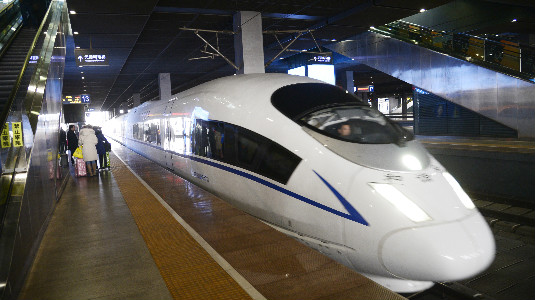Hefty investment fuels Beichen's development

In the first half of this year, Tianjin's Beichen district drew 51 Beijing projects with inked investment up to 30 billion yuan ($4.2 billion), according to an economic performance report released by local authorities on Aug 19.
In addition to actively integrating with Beijing-Tianjin-Hebei regional coordinated development, the district also rolled out policies to attract more investment as fuel for its economy.
As a result, in the first half of the year it achieved fixed-asset investment (FAI) of about 25.81 billion yuan, up 23.5 percent year on year, according to the report.
Beichen's economy is maintaining growth momentum. The regional GDP in 2018 reached 94.49 billion yuan. Per capita disposable income of residents rose 6.1 percent year-on-year to 36,980 yuan. General public budget income was 5.72 billion yuan, up 6.4 percent.
The industry structure of Beichen district has been optimized with ratios of primary, secondary and tertiary sectors adjusted to 0.6: 55.7: 43.7.
The district has a solid industrial base with a robust real economy based on four leading industries: high-end equipment manufacturing, modern medicine, new materials & new energy, and electronic information.
At present, sticking to innovation-driven development, the local government is focused on new technologies such as big data and artificial intelligence to integrate and promote the real economy.
The output value of strategic emerging industries accounts for nearly 30 percent of that of the total industries above designated size.
The district's twenty-eight World Top 500 Enterprises companies such as Siemens, ABB and LG, as well as influential domestic enterprises play vital roles in promoting local development, the authorities said.
Founded in 1992, the 85 square kilometer Tianjin Beichen Economic and Technological Development Area (BEDA) has become an important hub in the coordinated development of Beijing-Tianjin-Hebei integration.
It has attracted over 3100 enterprises from 26 countries and regions, including 25 Fortune Global 500 enterprises.
The district can also claim notable growth in modern service sectors such as logistics, e-commerce, and finance. Comprehensive high-end commercial complexes and cultural projects have increased, injecting energy into the local consumer economy.
In addition, demonstrative agricultural zones have been built in suburbs to explore high-quality modern agricultural methods, and a group of leading agricultural parks and enterprises are producing dairy, mushroom and other products, effectively increasing local income.

Copyright ©
Tianjin Municipal Government. All rights reserved. Presented by China Daily.
京ICP备13028878号-35

